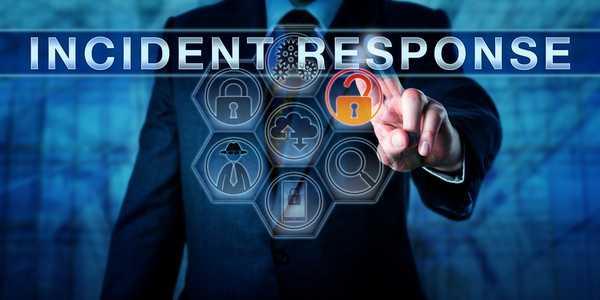3 Steps For Battling Cyber Thieves In Your CPA Practice
Cybersecurity is an issue that threatens every industry including CPA practices. A Cost of a Data Breach Report found that the “average global cost...
2 min read
Mindy Gallagher : Dec 2, 2019 12:00:00 AM
Ransomware attacks and data breaches make headlines across the country. Even so just 35 percent of local government IT executives say they have a cybersecurity plan.
Why don’t more local government agencies have cybersecurity plans?
One of the reasons may be that the key players in an agency haven’t realized the importance of a plan. Some people may believe they’re already well protected. Others might not think their agency will be targeted.
The long and short of it though is that every agency needs a cyber security plan. Here’s why.
The cybersecurity attacks that make headlines most often focus on big companies. A company like Facebook or Equifax has records for millions of people. It makes sense hackers would target them as a data breach could expose millions of records.
Not every cybercriminal has a “go big or go home” attitude though. Often the larger players in the field are more difficult to breach. Some hackers will turn their attention to where they know they’ll find success.
Small businesses individuals and local government are prime targets because they are small. Smaller organizations often have smaller cybersecurity budgets. The hacker may not be able to cause damage to as many people but they have a higher chance of success.
Cities and municipalities may not have the global reach of a Facebook or Yahoo!. They often have detailed data though. Facebook may not have information about someone’s property taxes or parking citations.
Hackers may find that information more attractive. As more local government services use online delivery and payment more data is available. A hacker has a better chance of getting someone’s credit card information from a city database.
Protecting local government records from cyber threats means more than using a firewall. More risks and more local government agencies offering online services means more chances for hackers.
A plan has to address the many ways cyber criminals can access data. You’ll want to develop email policies that help your employees avoid phishing scams. Those are just as important as IT protocols that test and patch local government systems.
A comprehensive cybersecurity plan will look at:
It also looks at the way you store and handle data.
Your plan should also involve your trusted cybersecurity partners. Think about where you store your data and the measures your provider takes to protect you. If you use software through the cloud ask what the vendor does to protect your data.
Local government agencies exist to serve citizens. Keeping your services online and citizens’ data safe is key so a cybersecurity plan is a must.
If you haven’t created a strategic plan for cybersecurity yet get in touch with the experts. Crafting an effective plan is easier when you have the right advice.


Cybersecurity is an issue that threatens every industry including CPA practices. A Cost of a Data Breach Report found that the “average global cost...

So you've been hacked. What is your incident response plan? If you don't have a plan ready to go for a security incident response you could be in big...

Are you looking to prepare your staff for a disaster? Are you trying to come up with a plan to keep your business running in an emergency?